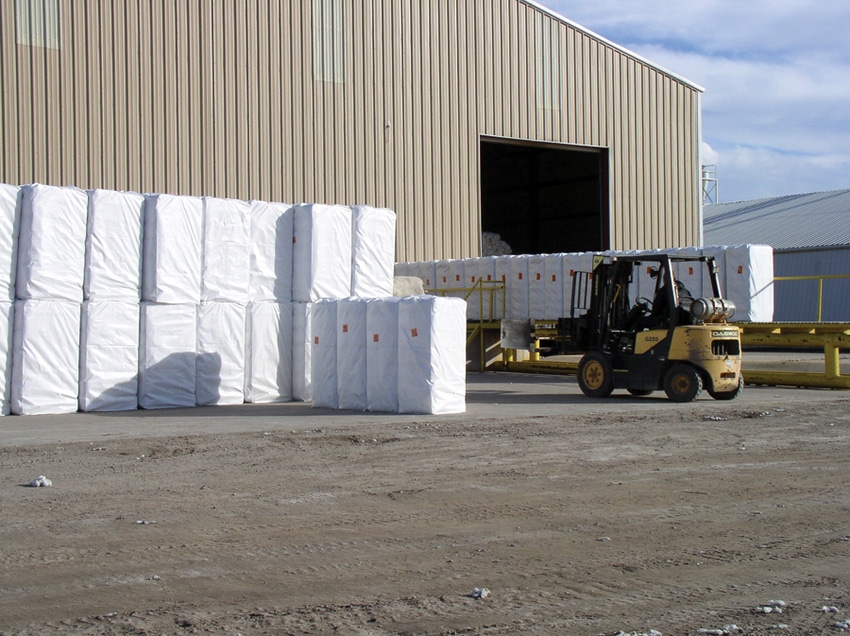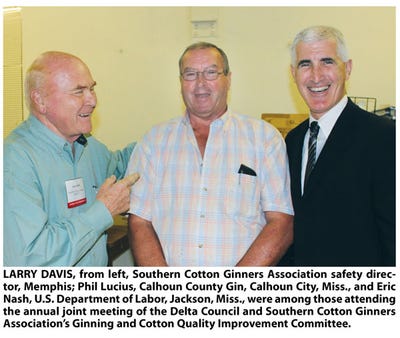
Ginners and others who hire workers should be sure to comply with U.S. Department of Labor rules for salaries, overtime, bonuses, employment of migrant workers, and child labor. “We will be doing investigations this year to determine compliance,” says Eric Nash, investigator for the department’s Wage and Hour Division.

Ginners and others who hire workers should be sure to comply with U.S. Department of Labor rules for salaries, overtime, bonuses, employment of migrant workers, and child labor.
“We will be doing investigations this year to determine compliance,” says Eric Nash, investigator for the department’s Wage and Hour Division, who discussed labor issues at the annual joint meeting of the Delta Council and Southern Cotton Ginners Association’s Ginning and Cotton Quality Improvement Committee.
“The agricultural sector has come a long way toward compliance, but there are still issues to be addressed, and we want to work with everyone to help them meet all the requirements.”
 This year, Nash notes, every employee must be paid at least the federal minimum wage of $7.25 per hour.
This year, Nash notes, every employee must be paid at least the federal minimum wage of $7.25 per hour.
Ginners should be particularly aware of rules regarding overtime, he says. “Most overtime violations occur during the period the gin is starting up.”
It’s important to keep accurate records to document all overtime and any exemptions, Nash says.
Problems can also occur, he notes, in payment of discretionary bonuses, if the amount does not reflect any overtime earnings.
“The easiest way to handle a bonus is to base it on a percentage of W-2 earnings for the year — that way, you’ll be sure that overtime earnings are covered.”
Larry Davis, Southern Cotton Ginners Association, said, “It’s my experience that a discretionary bonus opens you up to potential problems. If you base the bonus on W-2 wages, you’re documented and you’re OK.”
If migrant workers are hired, Nash says, requirements of the Migrant Worker Protection Act must be met. Under the act, anyone doing any kind of agricultural work and away from his residence overnight is considered a migrant worker.
“You must disclose, in writing, in the worker’s native language, how much he/she will be paid, how long they will work, etc., and this must be given to them upon recruitment.”
If housing is provided for workers, the Department of Labor must be contacted 45 days before workers arrive and a pre-occupancy housing inspection must be conducted.
“There are 104 items on the form that need to be checked,” Nash says. Notice must be posted telling workers how to get in contact with Department of Labor officials if housing conditions are not meeting requirements.
The employer’s federal ID number must be on check stubs of payments to migrant workers, and if they are not paid the amount of salary and/or overtime when due, it is a violation.
Child labor law violations are seldom seen, Nash says, but rules are very specific for ginning operations “and you need to be aware of these.”
Information on the various Department of Labor regulations can be found at www.dol.gov.
About the Author(s)
You May Also Like



